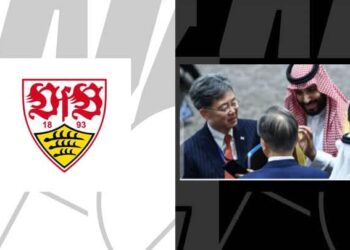In the ever-evolving landscape of Major League Baseball (MLB) contracts, Bryce Harper’s 13-year, $330 million deal with the Philadelphia Phillies, signed in 2019, once stood as the pinnacle of player earnings. Fast forward to today, and the financial dynamics have shifted dramatically, especially with Juan Soto’s recent record-breaking 15-year, $765 million contract with the New York Mets. This monumental agreement not only resets the market but also casts a new light on Harper’s contract, prompting discussions about its current valuation and implications for the Phillies’ future.
Harper’s Contract in Retrospect
When Harper inked his deal in 2019, it was the largest in MLB history, averaging approximately $25.4 million per year. At the time, many viewed this as a substantial commitment by the Phillies to secure one of the game’s premier talents. However, in the context of today’s contracts, Harper’s deal appears increasingly team-friendly. The average annual value (AAV) of his contract is now overshadowed by several players, including Soto, whose AAV stands at an unprecedented $51 million. citeturn0search3
Harper’s performance since joining the Phillies has been nothing short of stellar. Over five seasons, he has amassed 152 home runs, 455 RBIs, and maintained a .285 batting average. His on-base and slugging percentages have improved compared to his tenure with the Washington Nationals. Accolades such as two All-Star selections, a National League MVP award in 2021, and leading the Phillies to a World Series appearance in 2022 further underscore his value. citeturn0search1
The Impact of Soto’s Mega Deal
Juan Soto’s groundbreaking contract with the Mets has sent ripples throughout the league. At 26, Soto’s achievements include a World Series championship, multiple Silver Slugger awards, and consistent MVP considerations. His contract not only reflects his individual accomplishments but also signifies the escalating financial commitments teams are willing to make for elite talent. citeturn0search1
For the Phillies, Soto’s deal has sparked internal discussions about Harper’s contract. Scott Boras, the agent representing both Harper and Soto, has been vocal about the need to reassess Harper’s compensation in light of the new market dynamics. Boras highlighted that Phillies’ management, including owner John Middleton and President of Baseball Operations Dave Dombrowski, have engaged in conversations regarding Harper’s contract, indicating an awareness of the evolving market and its implications. citeturn0search3
Potential Contract Revisions for Harper
Given the current landscape, there is speculation about restructuring Harper’s contract to better align with the market’s valuation of top-tier players. One proposed approach involves extending the contract’s duration while increasing its total value, thereby enhancing Harper’s AAV. For instance, adding three years to his remaining seven-year term and increasing the total value to $400 million would elevate his AAV to approximately $40 million, placing him among the highest earners in the league. citeturn0search0
Such restructuring could incorporate deferred payments, a strategy that benefits both the player and the organization. For Harper, deferred payments would provide long-term financial security post-retirement. For the Phillies, it would reduce the immediate payroll burden, thereby freeing up resources to acquire additional talent and bolster the team’s competitiveness. citeturn0search0
Harper’s Perspective and Team Dynamics
While Harper has not publicly demanded a contract revision, the disparity between his earnings and those of newly contracted players like Soto is evident. Harper’s initial agreement notably lacked opt-out clauses, reflecting his commitment to a long-term tenure with the Phillies. This decision, while fostering stability, limits his leverage to renegotiate based on market inflation. citeturn0search3
The Phillies’ pursuit of other high-profile free agents, such as Soto, could further complicate internal dynamics. Offering a new player a contract surpassing Harper’s could be perceived as undervaluing Harper’s contributions and leadership within the team. This scenario underscores the importance of balancing financial decisions with team morale and the recognition of existing players’ sacrifices and commitments. citeturn0search4
Conclusion
Juan Soto’s monumental contract has not only redefined player valuations in MLB but also prompted a reevaluation of existing contracts like Bryce Harper’s. As the market continues to evolve, the Phillies face the challenge of addressing these disparities to maintain internal harmony and ensure that their financial strategies align with the team’s competitive aspirations. Harper’s unwavering commitment and stellar performance make a compelling case for a contract adjustment that reflects his true value in today’s market.










